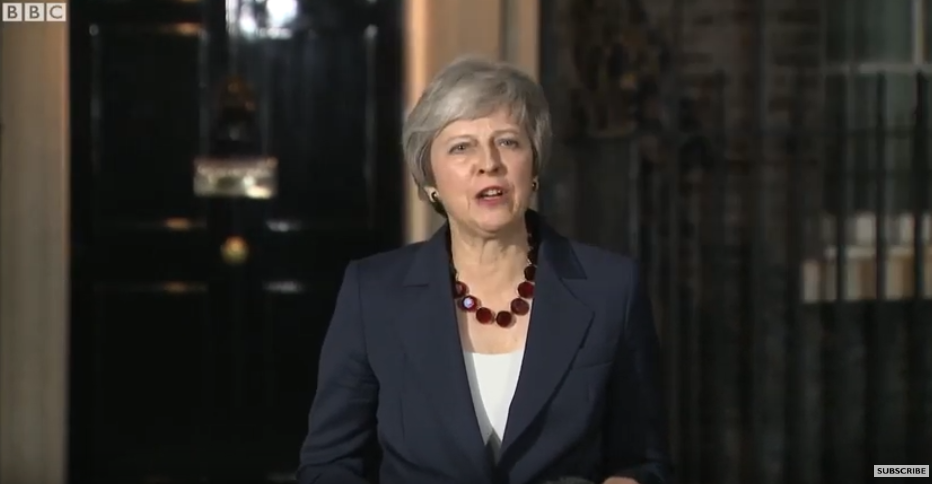 Reporter Patrick Kingsley followed in the left-foot only footsteps of his New York Times colleague, Peter Goodman, in finding child “hunger” in the United Kingdom and blaming it on “gleeful” austerity by the ruling Conservatives, in Wednesday’s “Touring World’s Fifth-Richest Nation for Lessons on Poverty.”
Reporter Patrick Kingsley followed in the left-foot only footsteps of his New York Times colleague, Peter Goodman, in finding child “hunger” in the United Kingdom and blaming it on “gleeful” austerity by the ruling Conservatives, in Wednesday’s “Touring World’s Fifth-Richest Nation for Lessons on Poverty.”
Goodman’s similar (and fact-challenged) piece from May 2018 also focused on a struggling town in the North of England, Prescot. Goodman was as subtle as a flying mallet about assigning blame: “The real malefactors are the same as ever, [Labour Party politician Andy Moorhead] says. He points at a picture of Mrs. Thatcher on the wall behind him...”
Kingsley followed around the United Nations special rapporteur for extreme poverty and human rights, Philip Alston, accompanied by two television cameras and a dozen journalists.
He is visiting food banks, job centers, community charities and government ministries in London, Oxford, Cardiff, Bristol, Edinburgh, Glasgow, Belfast and Essex -- as well as here in Newcastle -- to assess why about a fifth of Britons remain in poverty despite rising employment levels, economic growth and pockets of enormous wealth.
....
Having pioneered the welfare state in the late 1940s and the privatization of the state in the 1980s, Britain in the 2010s has become the world’s main laboratory for the politics of austerity. In response to the 2008 financial crisis, few governing parties have pared back the state for so long, and with such ideological glee, as the ruling Conservative Party in Britain.
“The U.K. was a world leader in social security after World War II, it was a world leader on privatization on a large scale and it is a world leader right now in self-imposed austerity,” Mr. Alston said in an interview during a rare pause in his schedule, aboard a train in northeast England. “And so it is an important case study to better understand the implications of an austerity approach.”
Since 2010, the government has set in motion more than $39 billion of cuts, freezing or reducing welfare payments and housing subsidies for families and disabled people and cutting back youth and children’s services, as well as funding for local authorities. Bungled technical reforms have also delayed payments to struggling families, forcing thousands into unnecessary debt and rent arrears.
....
[Tracey Whitenstall’s son] is among 600,000 children who have fallen into poverty since the start of the Conservatives’ reforms, a trend that is projected to continue by the Institute for Fiscal Studies, an independent analysis firm. The looming impact of Britain’s departure from the European Union, scheduled for March 2019, is also likely to worsen the situation, according to an alliance of children’s rights groups.
Alternate viewpoints made a very late appearance.
And while unemployment has more than halved under the Conservatives, wages have stagnated and the number of working families in poverty has risen.
Yet, poverty is a complex and contested subject in Britain, where there are several contrasting measures of deprivation, and some observers were skeptical about the necessity of Mr. Alston’s visit.
While child poverty has risen markedly in recent years, overall poverty levels have remained fairly steady or even dropped slightly -- partly because of sharp falls in pensioner poverty since the 1980s....
Kingsley's first bite of the apple actually came in September (lost in the Kavanaugh controversy) on the Times’ front page, “Warning Sign in Leaner Times: Hungry Children.”
[Principal Siobhan Collingwood] and her staff were puzzled: Many parents held jobs, even if they struggled to cover the bills. Then it dawned on them that the rising number of hungry children at Morecambe Bay coincided with sharp reductions in welfare benefits associated with the clumsy introduction of a new welfare program.
....
Across Britain, the number of children living in poverty has jumped sharply in the past six years, a trend that critics blame in part on the Conservative-led government’s policy of austerity, the budget-slashing response to the 2008 financial crisis that is steadily reshaping British life.
And there is no immediate relief on the horizon. The County Councils Network, a group of local governing bodies, warned recently of more than $1 billion in budget cuts nationwide next year, draining more money from social services, including some for children.
But the paper's scary statistics involve “relative poverty,” not necessarily what someone might consider actual hardship.
Some of the technical problems in implementing the reforms indeed sound infuriating. But the Times is all too eager to blame cruel Conservative Party “austerity” for everything that goes wrong in the lives of Northern Englanders.




